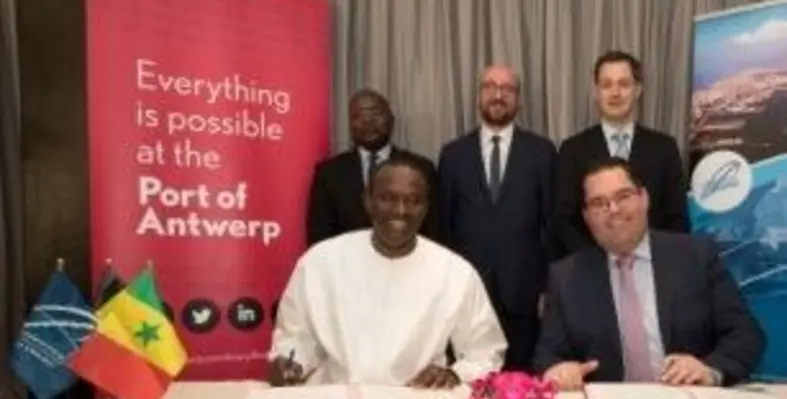Antwerp and Dakar port authorities have announced to collaborate more closely in the next few years, a move that is expected to strengthen the position of both the ports as regional logistics hubs
Antwerp, the second-largest port in Europe, aims to reinforce its historic position as leader on the coast of West Africa. The Senegalese port of Dakar for its part views the collaboration as a way to position itself as the main regional hub for freight.
In order to put an official seal on the future collaboration, the respective port authorities signed a MoU. The signing ceremony was attended by the Belgian first minister Charles Michel and deputy first minister and minister of Development Cooperation Alexander De Croo, both on a working visit to Senegal.
Crossroads of Dakar
With an annual freight volume of 17mn tonnes, Dakar is one of the largest ports on the coast of West Africa. This port city occupies a strong position on the world map, located at the crossroads of sailing routes between Europe on the one hand and North and South America and southern Africa on the other.
Dakar has set its sights higher and plans to build a new port 50km away from the present facility which with a keel depth of 18m will be able to handle the latest generation of giant container carriers without difficulty. Together with the new port Dakar also plans an economic and logistics zone of 600 ha.
Antwerp’s expertise
“We will make use of our experience and expertise to help Dakar realise its ambitions,” declared Kristof Waterschoot, CEO of two subsidiaries of Antwerp Port Authority (PAI and APEC).
A recent report by the World Bank underlines the economic potential of the continent but also points up a number of challenges such as the lack of sufficiently trained personnel. “We will immediately step in to fill this gap, by sharing our know-how and expertise. Our training centre APEC remains the partner of choice for training maritime professionals, while our consultancy subsidiary PAI will assist the port authority with the necessary expertise for developing a multipurpose terminal and deepening the approach channels so as to maximise the capacity of the port of Dakar,” Waterschoot concluded.
The MoU also contains a number of commitments in the area of marketing, developing trade relations, organising joint commercial events and exchanging information on subjects such as customs and excise, security and sustainability. The agreement has been signed for a period of five years.














